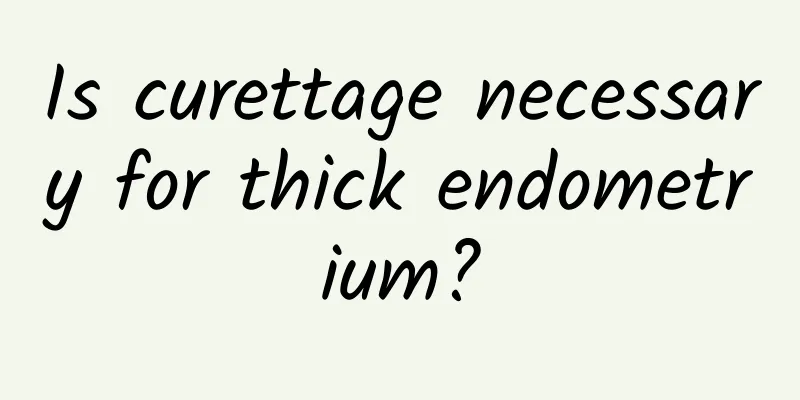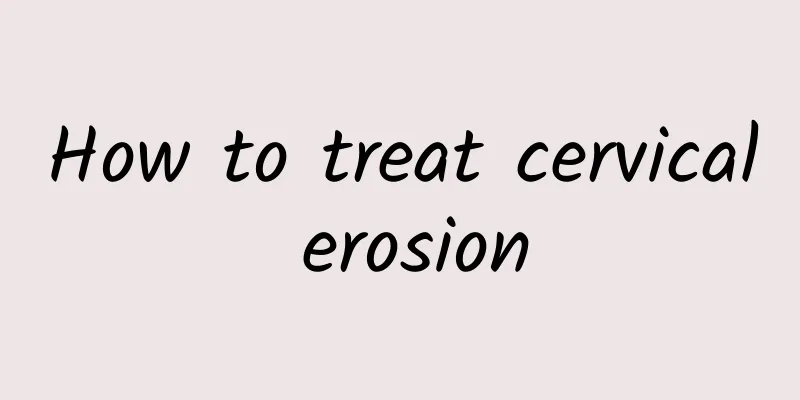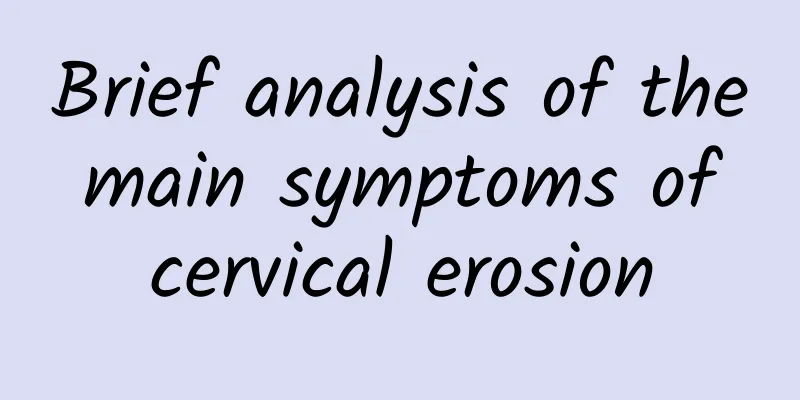Is curettage necessary for thick endometrium?

|
Thick endometrium does not necessarily require curettage. Whether curettage is needed depends on the individual's health condition and the doctor's professional evaluation. 1. The situation of adolescent women: During adolescence, many girls' bodies are still developing, especially the hypothalamus-pituitary-ovarian axis is not yet fully mature. This means that their menstrual cycles may be irregular and their progesterone levels may be relatively low, leading to thickening of the endometrium. In this case, doctors usually choose to observe and monitor rather than perform curettage immediately. Because as the body gradually matures, the menstrual cycle will return to normal and the thickness of the endometrium may recover naturally. 2. Considerations for women of childbearing age: For women of childbearing age, endometrial thickening may be caused by a variety of factors, including changes in hormone levels, stress, lifestyle, etc. Doctors usually conduct detailed examinations to rule out other potential problems, such as endometrial polyps or endometrial hyperplasia. If there are no serious symptoms or lesions, it may be improved by regulating hormone levels with drugs rather than direct curettage. 3. Women approaching or in menopause: At this stage, endometrial thickening may indicate more serious problems, such as endometrial hyperplasia or the risk of cancer. In this case, the doctor may recommend curettage for more detailed pathological examination and treatment. However, this is not absolute, and everyone's situation is different. The specific treatment plan needs to be determined based on the individual's health status and examination results. 4. Influence of lifestyle: Regardless of age, maintaining a healthy lifestyle is important for managing uterine health. A balanced diet, moderate exercise, and maintaining mental health can help regulate hormone levels in the body, which may improve the health of the endometrium. 5. Importance of regular check-ups: Regardless of whether you have endometrial thickening or not, regular gynecological check-ups are very important. Through regular check-ups, potential problems can be detected early and appropriate measures can be taken to manage them. Whether a thick endometrium requires curettage depends on a variety of factors, including age, health status, and specific medical evaluation. It is recommended that female friends with related questions consult professionals in time to obtain the most suitable health advice and treatment plan for themselves. Maintaining good living habits and regular health checks are important measures to maintain uterine health. |
<<: What if I haven't had my period for a month after a miscarriage?
>>: Is bacterial vaginosis serious?
Recommend
The cause of cervicitis is related to sexual life
The incidence of cervicitis has been increasing i...
How many days does it take to recover after uterine fibroid surgery?
How many days does it take to recover after uteri...
How long will it take for menstruation to come after medical abortion? You will know after reading this
The time of menstruation after medical abortion v...
Should your knees not go beyond your toes when squatting? Chiropractor Dr. Zhang Xuanbin reveals: 3 principles of correct squatting
The benefits of "squats" include streng...
What are the harms of uterine fibroids to the human body?
What are the hazards of uterine fibroids to the h...
Abnormal vaginal discharge after excessive exercise
Abnormal vaginal discharge after excessive exerci...
Consuming low-calorie protein can help you lose weight without losing your cleavage
With the arrival of summer, many people are prepa...
What tests are needed for cervical hypertrophy?
Correctly checking for cervical hypertrophy is an...
Things to keep in mind about menstrual vaginitis
Menstrual vaginitis is a type of gynecological in...
It is important for women to take measures to prevent cervical erosion
Cervical erosion is a disease suffered by most pe...
What is the reason for two miscarriages? It may be caused by these 5 reasons
If a woman has two unexpected miscarriages, she c...
Indications for negative pressure aspiration for abortion
Artificial abortion refers to the termination of ...
What kind of exercise is better for uterine fibroids? What kind of exercise can make uterine fibroids smaller?
What kind of exercise is better for uterine fibro...
How to cure ovarian cysts
How to cure ovarian cysts? Ovarian cysts are one ...
How to treat endometriosis infertility
Generally speaking, women with endometriosis may ...









